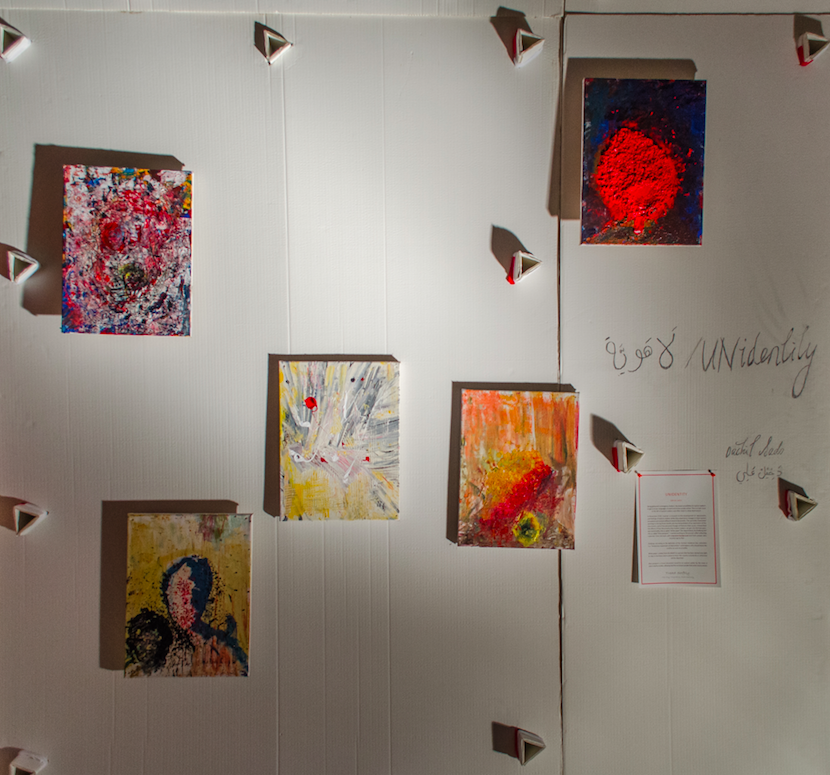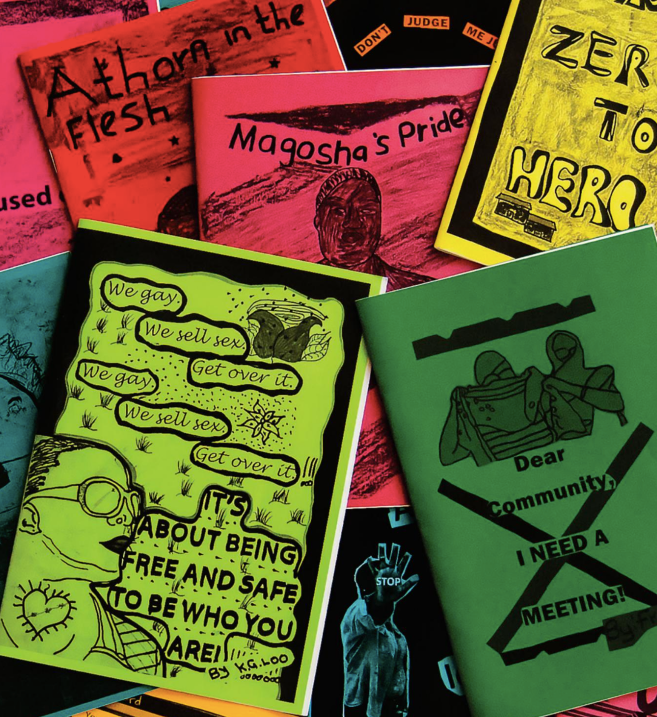
The Sex Worker Zine Project is a publication featuring the stories of 24 women, men and transgender individuals, who live and sell sex across several South African provinces. The aim of the project was to generate material produced by migrant sex workers to challenge the stereotypes around their nationality and occupation. The Zines reveal stories of migration, trajectories into sex work, and other aspects of life that were important to the participants. Many of the stories shed light on the experiences of selling sex and being discriminated for their job. Funded in 2015 by the Open Society Foundation and Wellcome Trust, the project was conducted by Elsa Oliveira and Jo Vearey through MoVE over the course of two weeks. During the first week, participants took part in the multimodal visual and narrative exercises, such as storytelling and art making. Throughout the second week, participants selected either a story or a theme to focus on with the support of peers and facilitators. The end result is a collection of beautifully assembled zines that can be found here. MoVE explores the ways in which research can be co-created between participants and researchers, to give migrant persons an option to create their own representations to share with public audiences.
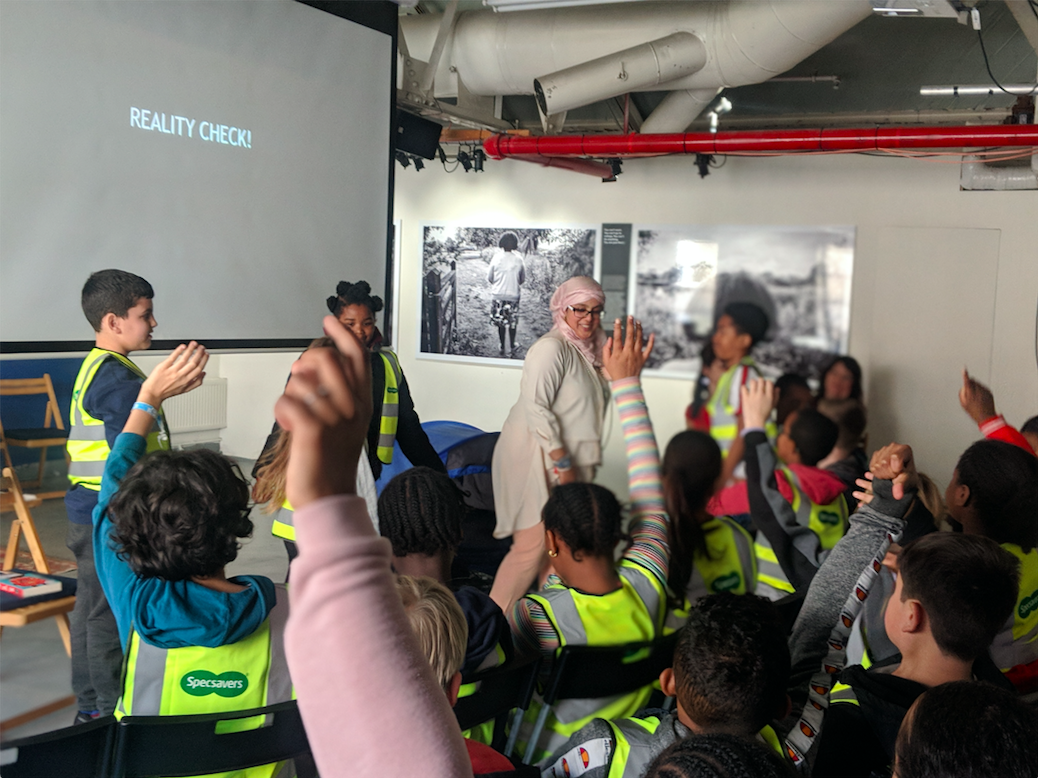
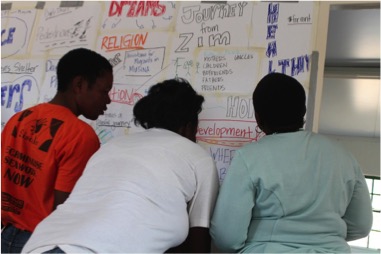
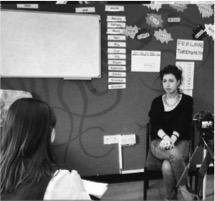
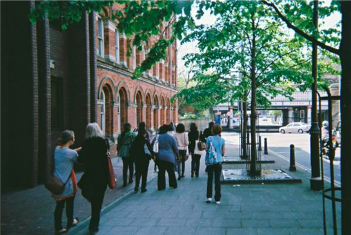
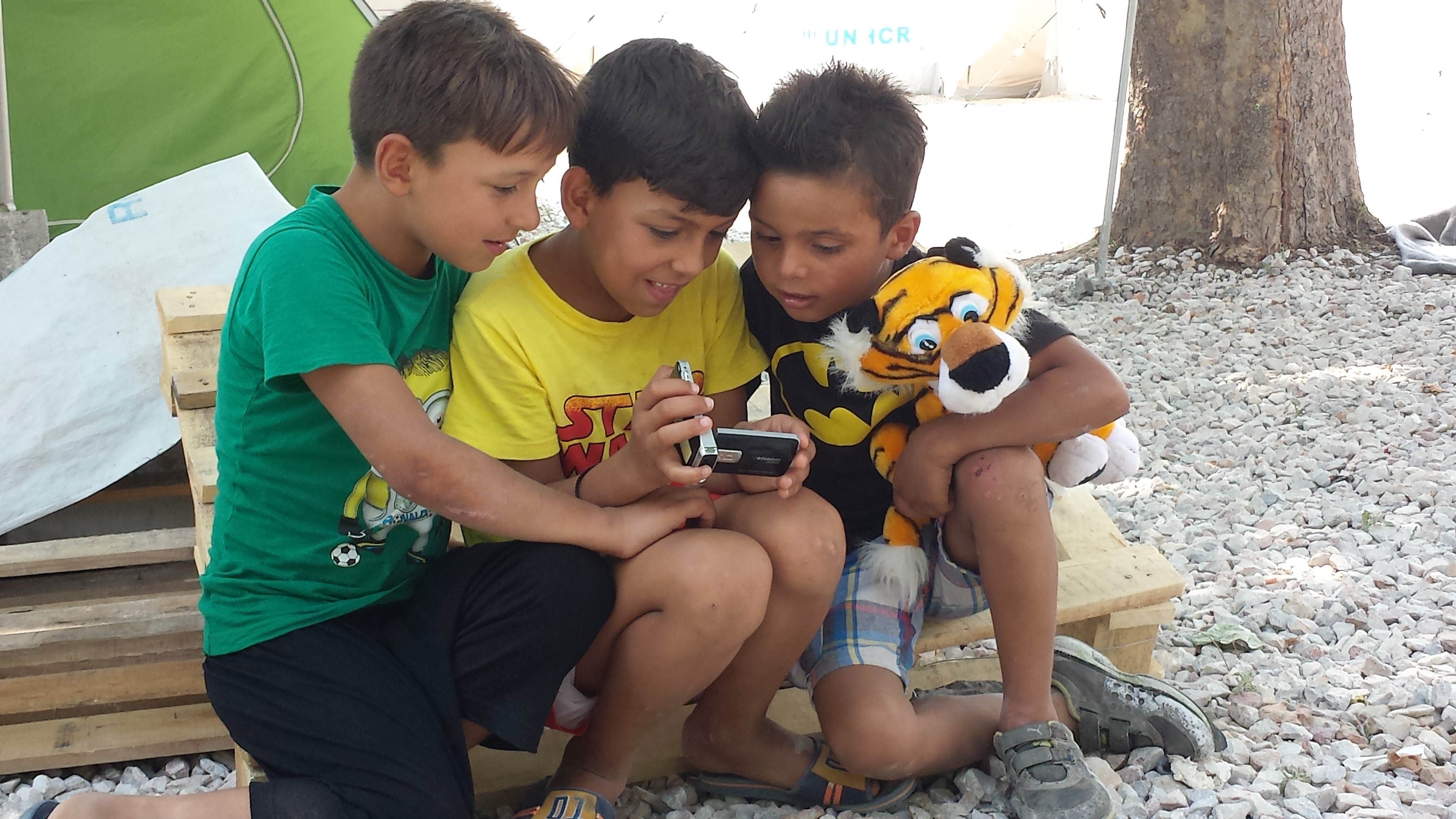
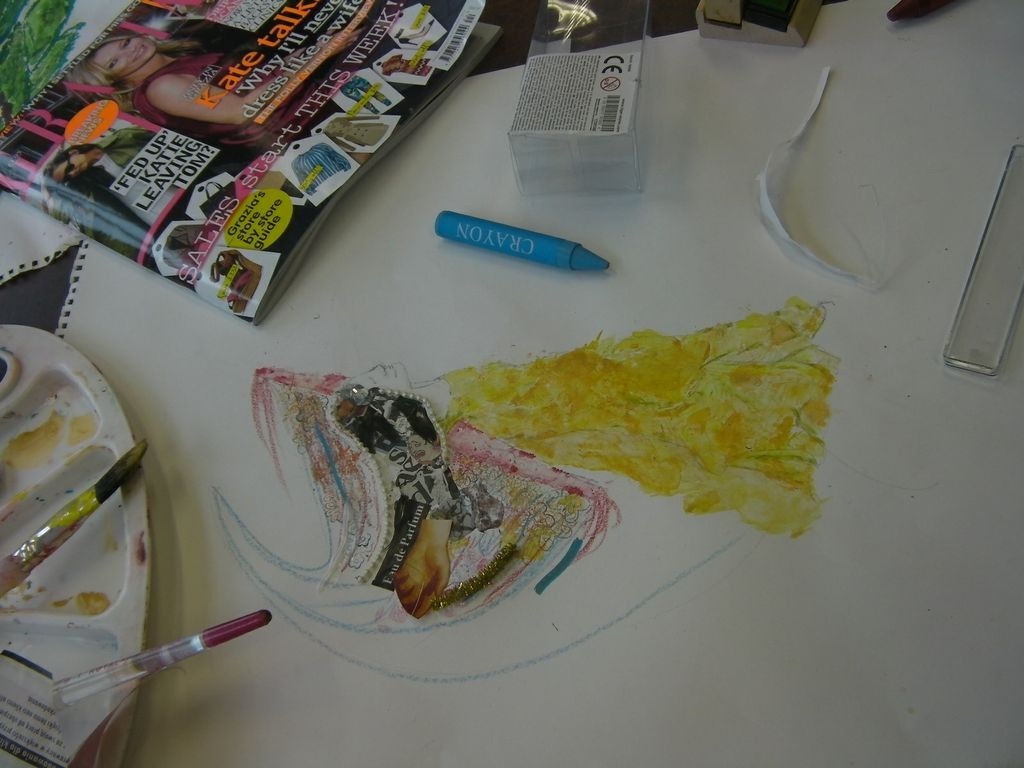
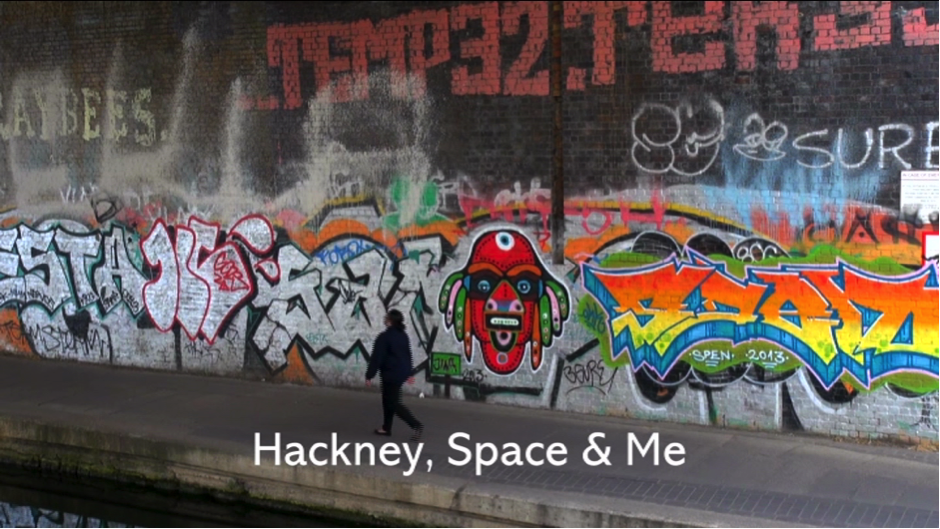
 The Brexit vote engendered a sense of fractured nationhood in Wales. Wales voted to leave the European Union, however, the regions of Ceredigion, Cardiff and Gwynedd voted to remain. A key point of persuasion in the media and Brexit campaign was migration. This project explored representations of migration in Wales, both historically and in the current climate, in these three remain regions. There was an analysis of local print press media around migration to examine the positioning of migrants and the dominant competing discourses. Interviews with migrants explored how they felt they were positioned by wider Welsh society and how the temporal shift between pre- and post-Brexit have impacted on their everyday experiences. Interviews involved pre-tasks where participants worked with a pictorial timeline to reflect on these shifts and created a metaphor to represent their experiences. There was also a photo elicitation activity where images from recent media reports leading up to Brexit were introduced and explored. The findings from the study are presented in multi-modal forms, including an animated short film and two posters, to increase their accessibility and address issues of impact and engagement. You can see an animated film reflecting on the project
The Brexit vote engendered a sense of fractured nationhood in Wales. Wales voted to leave the European Union, however, the regions of Ceredigion, Cardiff and Gwynedd voted to remain. A key point of persuasion in the media and Brexit campaign was migration. This project explored representations of migration in Wales, both historically and in the current climate, in these three remain regions. There was an analysis of local print press media around migration to examine the positioning of migrants and the dominant competing discourses. Interviews with migrants explored how they felt they were positioned by wider Welsh society and how the temporal shift between pre- and post-Brexit have impacted on their everyday experiences. Interviews involved pre-tasks where participants worked with a pictorial timeline to reflect on these shifts and created a metaphor to represent their experiences. There was also a photo elicitation activity where images from recent media reports leading up to Brexit were introduced and explored. The findings from the study are presented in multi-modal forms, including an animated short film and two posters, to increase their accessibility and address issues of impact and engagement. You can see an animated film reflecting on the project 